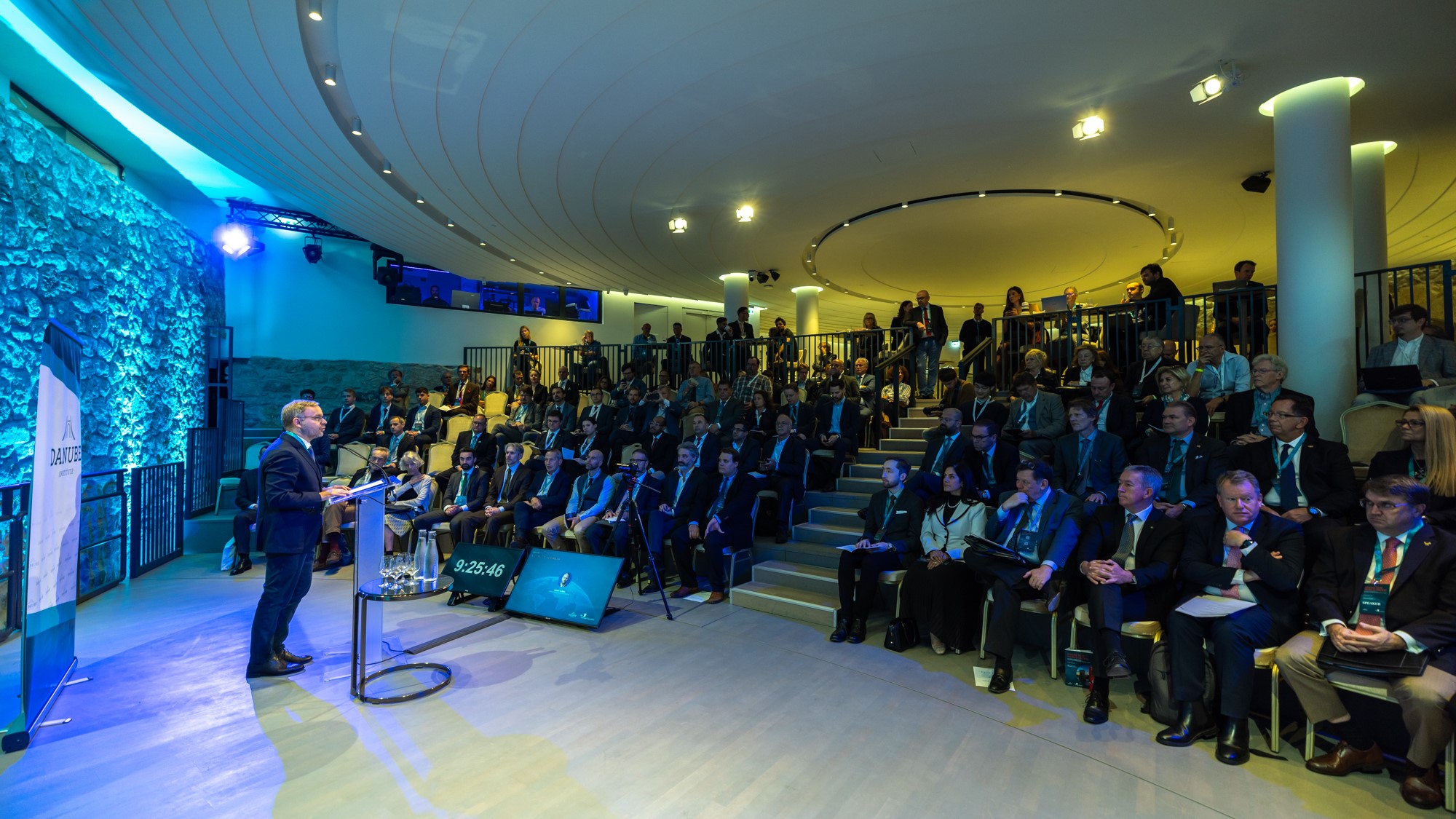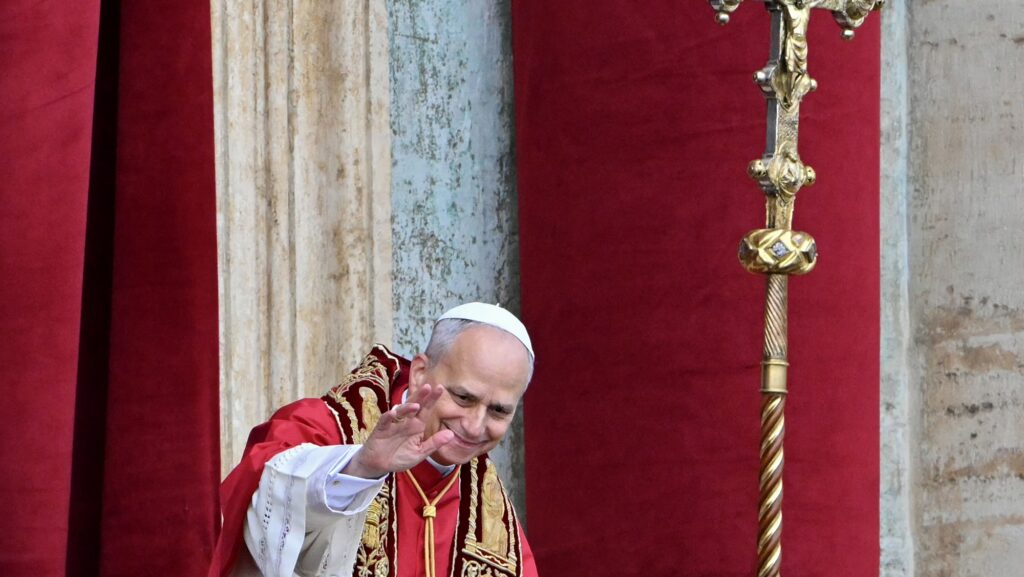Five years ago, when I first came to Budapest, Prime Minister Viktor Orbán held an impromptu meeting with a group of foreign conservatives, and told us to think of Budapest as their intellectual home. Nice, I thought—but whoever thinks of Budapest?
Today, the Hungarian capital is part of the ongoing political discussion at the highest levels of American political life—for better or for worse. Hungary is either a symbol of all that is bad in the Western world—that’s how progressives, liberals, and neoconservatives see it; or it’s a plucky resister to globalism, social liberalism, and mass migration, a laboratory for a new kind of right-of-center policymaking. This, of course, is how MAGA partisans and postliberal conservatives regard the country.
Wherever you stand, few people ignore Budapest anymore. Conservatives can say and hear things here that challenge and even break through the rigid but dying consensus in our home countries. For instance, in the United States it is difficult to question the proposition, in both Democratic and Republican circles, that America should be the world’s pre-eminent power. U.S. conservative strategists and policymakers, therefore, risk missing out on important geopolitical changes that ought to affect the way they think about the world as it truly is.
You can say these things in Budapest, though. On Tuesday, Political Director for the Prime Minister of Hungary Balázs Orbán gave the keynote address to a group of American and British conservatives gathered for the annual geopolitical summit co-hosted by the Danube Institute and the Heritage Foundation, the leading U.S. conservative think tank. Orbán led with a bang.
‘A new world order is coming,’ Orbán declared, ‘and we need to know what stance, what narrative, what kind of thinking, and what actions will help us become the winners in this new order.’
What is the old world order? It’s the post-World War II settlement, the so-called ‘Washington Consensus’ that governed the American-led West’s relationship to the non-communist world. Orbán explained it like this: ‘In return for money and access to Western free trade system, a Western-style liberal world would be built, and in the end, the whole world would embrace Western liberal values.’
The end of the Cold War and the defeat of Communism—not even the Chinese Communists are really Communist anymore—caused rejoicing in the halls of Western power. History has ended! said the victors, and liberal democracy has triumphed!
‘A new world order is coming, and we need to know what stance, what narrative, what kind of thinking, and what actions will help us become the winners in this new order’
And yet, a strange thing happened. The triumph of liberal democracy (and its economic handmaiden, capitalism) pushed traditional conservatives to the margins. ‘The values that are dear to us—God, the nation, the family, the community, and the way of life we love—could all be thrown away,’ Orbán said.
This is something we have all experienced over the last thirty years, so Orbán didn’t have to explain why. Still, it is worth pausing to consider what’s behind this.
Globalism—which has entailed conceptually both liberal democracy and hypercapitalism—depends on the deconstruction of borders, the dissolution of peoples, and the abandonment of traditions that stand in the way of frictionless economic exchange. And liberalism itself, detached from the Christian faith that gave rise to it, turned into radical individualism—the frictionless exercise of the individual’s autonomy from all things unchosen—and the commodification of all things. When Marx and Engels said that under capitalism, ‘all that is sacred is profaned,’ they were histrionic, but not entirely wrong.
As it turned out, while this revolution was hollowing out the West, the rest wanted no part of it. Or rather, they wanted the part that would make them rich—the capitalism, though bent to their own national advantage—, while rejecting liberal democracy and the radical individualism that comes with it. The West may wish to queer itself, but most of the world prefers to stick with what they know.
For us, said Orbán, the ripening of the old world order ‘has created tensions within the Western world that are undermining the very conditions for coexistence, public safety, and trust. After all, it is fundamentally conservative values that are capable of creating true social cohesion. This is why the liberal world order, as understood by the liberals, is no longer sustainable.’
So what does the new world order portend? Orbán calls it the ‘Age of Sovereignty’. The essence of this is that there are several major power centers in the world, and cooperation based on mutual benefits is needed between them. No single bloc will be strong enough to dominate all the others. And the whole world has an interest in ensuring that no bloc even attempts such a thing, because any such attempt would lead to armed conflict, the suffering of millions, economic decline, and the breakdown of the social fabric.
‘It is fundamentally conservative values that are capable of creating true social cohesion’
This is a ‘realist’ approach that recognizes power in the world as it is, not as ideologues would like it to be. Listening to Orbán speak, I recalled George W. Bush’s second Inaugural address, delivered in 2005, in which the president extolled the virtues of crusading American utopianism. ‘The best hope for peace in our world is the expansion of freedom in all the world,’ Bush said, and later, ‘[s]o it is the policy of the United States to seek and support the growth of democratic movements and institutions in every nation and culture, with the ultimate goal of ending tyranny in our world.’
This was the president who led the United States into the disastrous war in Iraq that destabilized the Middle East and delivered that country into the hands of Iran’s allies. This was the president whose administration hemorrhaged American blood and treasure on the failed and absurd attempts to build liberal democracies in Iraq and Afghanistan. Yet the Washington Consensus has learned nothing from this history.
It is telling that Dick Cheney, Bush’s vice president and the most powerful advocate within the administration for hawkish U.S. policy, recently endorsed Democrat Kamala Harris for president. The Democrats are now the war party, and they still carry with them anti-Trump Republican institutionalists. The Washington Consensus may be old and frail, but it still has bite.
Orbán said the West should observe three main points in determining its actions in the Age of Sovereignty. First of all, an end to ideological wars. ‘Today, we see that progressive liberals are on the side of war, specifically in the case of the Russia–Ukraine conflict, where they argue for the continuation of the war,’ he said. Many thousands have died in that war, while Ukraine’s economy has been all but destroyed, and Europe has suffered serious economic setbacks. America’s chief rivals have grown stronger, and the world moves closer to World War III.
(Surely the prime minister’s political strategist knew that in his audience sat a number of American hawks still committed to the Ukrainian cause. It is good that they were able to hear this challenge from a friend, even if they had to come to Budapest to receive it.)
Orbán added that we have to rediscover the capacity to create sustainable peace.
Secondly, an end to economic decisions based on ideology. ‘The sovereign world order has only one guiding principle when it comes to the economy, and that principle is national interest. This is difficult because it’s different for every nation.’
For example, the United States, having exported much of its industrial base abroad over the last three decades, is now moving towards repatriating it. By contrast, in Hungary, which is far smaller, ‘we need to strive for economic neutrality. This means we cannot be selective about who wants to invest in Hungary.’
‘The sovereign world order has only one guiding principle when it comes to the economy, and that principle is national interest’
He was talking about Hungary’s turn to China under the Fidesz government. Orbán’s point, politely put, is that the United States needs to stop strong-arming its allies into embracing policies that serve America’s interests, but not their own.
Finally, hold fast to traditional values that foster social cohesion. Otherwise, said Orbán, ‘our societies will weaken to the point where we won’t be able to compete with other parts of the world.’
He singled out three points of culture-war combat: mass migration, gender ideology, and ‘imperial ideologies’, by which Orbán meant the globalist worldview—he alluded to the European Union apparatchiks in Brussels—that ‘seeks to erase nations and replace them with a centrally controlled political power that wants to homogenize the world.’
These three anti-traditional causes have become key to advancing the consensus of the Washington establishment and its allies in Brussels and other European capitals. Hungary, he said, has felt the brunt of their hostility for resisting for the sake of protecting national sovereignty, both political and cultural.
Though Orbán didn’t press the point, given the contempt Washington institutions and the U.S. media have for Hungary, portraying it as a bone in the throat preventing all of Europe from swallowing U.S.-led liberal hegemony, some Americans in the audience might have been surprised by what they heard. As the growing stream of U.S. conservatives visiting Hungary have learned, the land of the Magyars is not a crypto-fascist dictatorship, but is slandered and punished for having the nerve to stand up for itself and its way of life.
‘We believe that every nation, every human community can only succeed if they are allowed to live by their own rules,’ said Orbán. There is a reason that Donald Trump and Viktor Orbán see eye to eye, said the prime minister’s chief political aide. They are both nationalists who believe all countries are best governed when they pursue their own interests, not exclusively, but first. They are both opposed to ideological wars. And they both generally oppose cultural liberalism, especially on mass migration.
The stakes in the upcoming U.S. presidential election could not be higher, Orbán concluded, not just for Hungary, but for the entire West.
In follow-up remarks, the outspoken Tory politician Lord David Frost echoed Orbán’s speech, saying that we in the West are operating as if the world had not changed, and that the unipolar moment of 1990s American hyperpower was still in effect. Conservative parties, he said, ‘have to get real about all this.’
The American think tanker and political columnist Henry Olsen added that the future of successful conservative parties in the West depends on ‘nationalism, markets, and redistribution.’ He meant that parties of the Right must embrace sovereignty, and temper the hard edges of capitalism by addressing through state policy the growing economic chasm between the rich and the vast number of their fellow citizens whose incomes are stagnating, or who are even slipping into financial insecurity, even poverty.
It’s all very Trumpy—or, to be precise, it’s the postliberal political outlook that Trump running mate J.D. Vance has articulated in more intellectual depth, much to the alarm of official Washington.
Geopolitical realism made for a robust first day of the Danube–Heritage summit, and it was cheering for us postliberal conservatives hear our views characterized as the way of the future. Yet the prominent U.S. conservative journalist John Fund rose to cast, well, a realist pall over the morning’s speeches.
Declaring himself opposed to a Kamala Harris presidency, Fund, who is well-connected to Donald Trump’s inner circle, warned that the 78-year-old Republican challenger is slowing down mentally, and is believed by some close to him to have post-traumatic stress disorder from this summer’s assassination attempt.
Fund said Prime Minister Orbán’s decision to bet everything on a Trump victory was reasonable. But given political realities, and Trump’s apparent mental decline—particularly the ease with which he is distracted from campaigning by silly issues—Fund gave Trump ‘no better than a 50 percent shot’ at winning in November.
And if Trump loses? The American did not flinch from delivering unpleasant news to his Magyar friends. If Harris wins, he said, her administration’s hatred of the Fidesz government means it will want little to nothing to do with Hungary, except to turn it into an example of what happens when you defy the Washington Consensus.
President Harris, he warned, ‘will have two words for you, and they’re not ‘‘happy birthday.’’’
More from the event:







